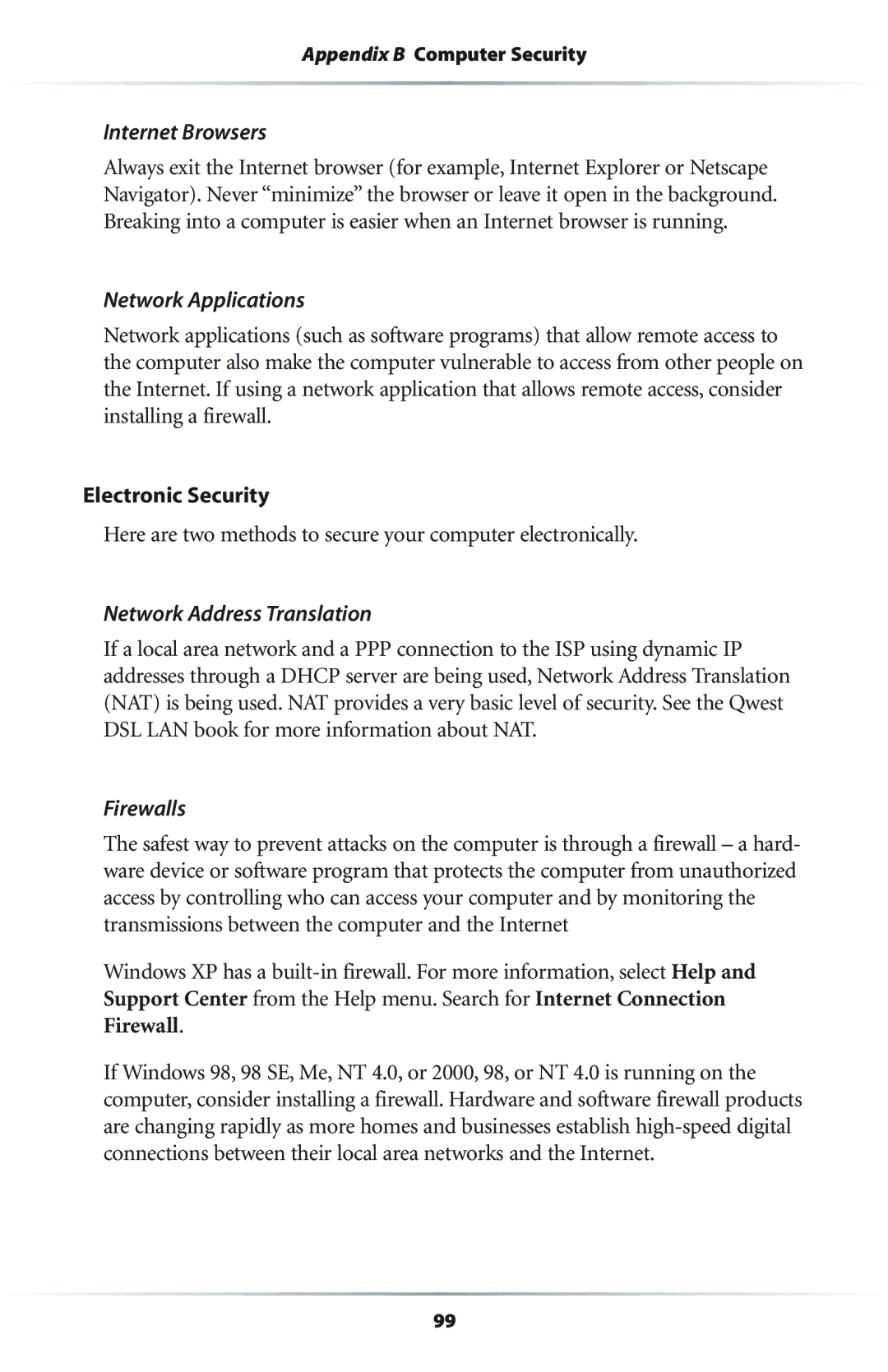
Appendix B Computer Security
Internet Browsers
Always exit the Internet browser (for example, Internet Explorer or Netscape Navigator). Never “minimize” the browser or leave it open in the background. Breaking into a computer is easier when an Internet browser is running.
Network Applications
Network applications (such as software programs) that allow remote access to the computer also make the computer vulnerable to access from other people on the Internet. If using a network application that allows remote access, consider installing a firewall.
Electronic Security
Here are two methods to secure your computer electronically.
Network Address Translation
If a local area network and a PPP connection to the ISP using dynamic IP addresses through a DHCP server are being used, Network Address Translation (NAT) is being used. NAT provides a very basic level of security. See the Qwest DSL LAN book for more information about NAT.
Firewalls
The safest way to prevent attacks on the computer is through a firewall – a hard- ware device or software program that protects the computer from unauthorized access by controlling who can access your computer and by monitoring the transmissions between the computer and the Internet
Windows XP has a
If Windows 98, 98 SE, Me, NT 4.0, or 2000, 98, or NT 4.0 is running on the computer, consider installing a firewall. Hardware and software firewall products are changing rapidly as more homes and businesses establish
99
